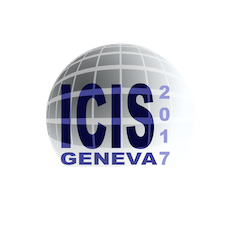Speaker
Description
ISOLDE is a radioactive ion beam facility within CERN’s proton accelerator complex. Ion beams of more than 70 different elements can be produced using different ion source types available at ISOLDE. Most commonly used are the positive surface ion source, the Resonance Ionization Laser Ion Source (RILIS) and the Forced Electron Beam Induced Arc Discharge (FEBIAD) ion source. In recent years the availability of negative ion beams at ISOLDE was re-established and the development program of negative ion sources was revitalized.
Currently both development studies and routine production share the same target and ion source infrastructure, including the off-line mass separator and calibration test stand, and since the target production schedule has to be prioritized this creates a bottleneck for development work. This is being addressed by the construction and commissioning of a new "Off-line 2" facility. In addition a dedicated test stand for ion sources has been conceived, which will allow basic validation of new sources or design concepts before they are tested further with the mass separator.
Here we present the design of the new ion source test stand. The two main features are an ion extraction system that allows us to measure the total ion beam current, and a residual gas analyzer that allows us to monitor source degradation and outgassing. A data acquisition and control system will facilitate the automation of repeated measurement tasks, thereby also enabling long-term performance tests, rigorous quality control and stress testing. Eventually we will perform destructive tests which will give insight in to failure modes and operational limits, the lack of knowledge of which is often a limiting factor in achieving optimal ion source performance under on-line conditions.
We will give an overview of the ion source types available at ISOLDE, describe the ion source test stand, and present an outlook towards its proposed applications. The results obtained for the negative ion source development will be also be discussed.




